Fall River Historical Society's new book could have Lizzie Borden fans rethinking theories
- Oops!Something went wrong.Please try again later.
- Oops!Something went wrong.Please try again later.
FALL RIVER — The Lizzie Borden murder case has fascinated generations of true-crime sleuths for over a century, like an endless jigsaw puzzle where some pieces fit perfectly, others have several options, key pieces are missing entirely — and the picture they produce changes depending on how you look at it. And with the Fall River Historical Society’s newest book, several hundred more key pieces have been added to the box.
On Monday, Dec. 6, the Fall River Historical Society Press released “The Jennings Journals 1892,” a landmark new book in Lizzie lore that features previously unpublished notes and documents from Borden’s defense lawyer, Andrew Jackson Jennings, transcribed from his original diaries.
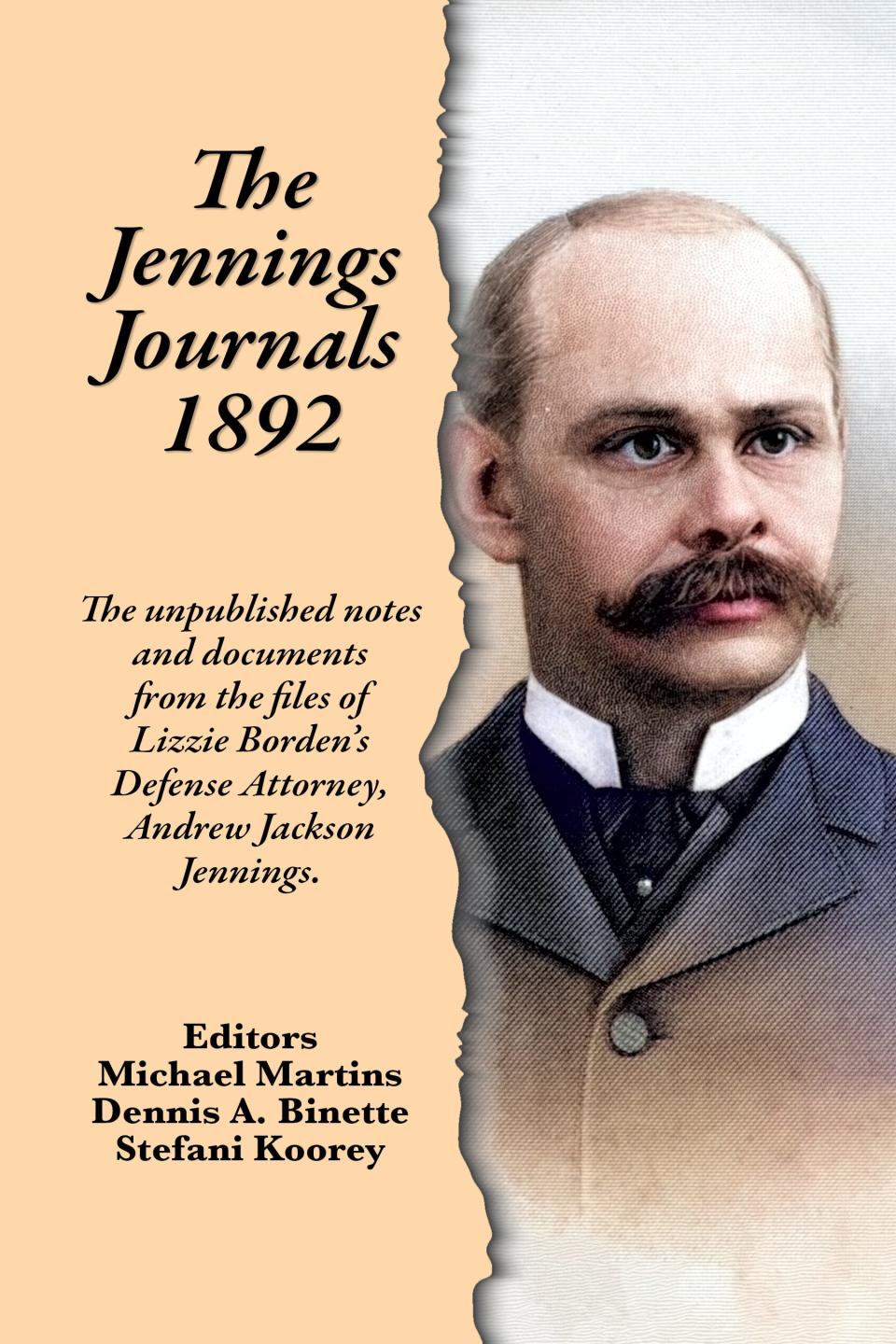
"This is the most significant primary source material that has surfaced in some time," said Fall River Historical Society Curator Michael Martins, one of the book's three editors.
"The Jennings Journals" is the only view we have into how Lizzie's lawyers built their case in what is still one of the world's most famous trials — and it was nearly lost forever.
Looking for Lizzie: Here's why Fall River's infamous legend Lizzie Borden will never die
A treasure trove of forensic evidence found in a bathtub
“The Jennings Journals” has been in the works for a decade, edited by Martins, Assistant Curator Dennis Binette, and author and Lizzie Borden expert Stefani Koorey. But the journals themselves go back 129 years.
The journals were compiled by Jennings and defense team member Arthur Sherman Phillips, not long after the arrest of Lizzie Borden on charges that the well-to-do 32-year-old woman had brutally hacked to death her father and stepmother, Andrew and Abby Borden, in their home at 92 Second St. on the morning of Aug. 4, 1892.
The journals, a mix of interview notes with potential witnesses and newspaper clippings, were never intended for publication — they were meant to aid the lawyers in preparing Lizzie’s defense. After the trial and Lizzie’s acquittal in 1893, the journals served no further purpose and became temporarily lost for decades.
'Knowlton-Pearson Correspondence': A new Lizzie Borden book reveals the backstory behind 'the father of true-crime' writing
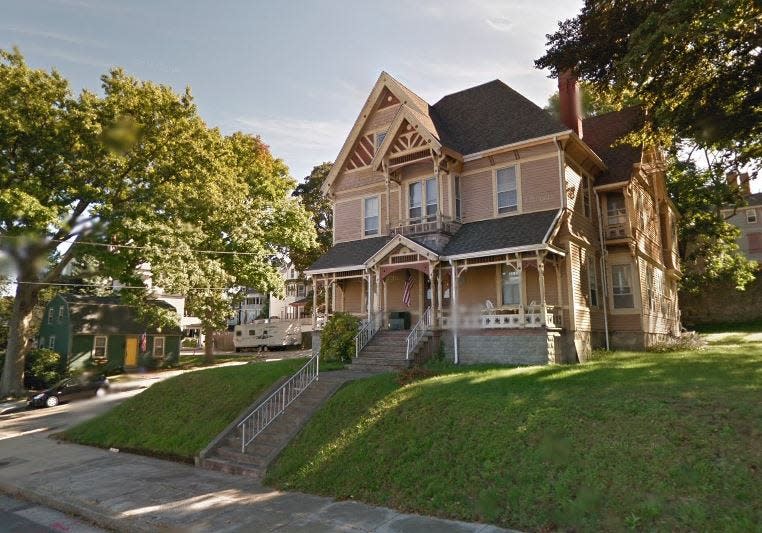
In the 1940s, years after Jennings’ death, his children found the journals in the attic of his June Street home in an antique hip bath, a sort of portable bathtub. They'd nearly thrown out the tub and its contents until a second glance revealed that it contained a staggering amount of evidence pertaining to the Lizzie Borden case — nearly everything from the trial.
The hip bath contained not only their father's defense team's journals, but forensic evidence: hair clippings from Andrew and Abby Borden, vials and microscope slides of the Bordens’ stomach contents, the blood-spattered bedspread from the guest bedroom at 92 Second St. where Abby Borden was found slain. The 13-inch hair switch worn by Abby, and thrown from her head during the killing, was in there, too. A hatchet was inside — though never proven to be the true murder weapon. For whatever reason Jennings had kept all of this material, it has provided future historians and Bordenologists with clues enough to keep them busy for decades.
“The police didn’t keep anything — they didn’t need to, because they were done. If it wasn’t her, it wasn’t anybody," Koorey said. "So the prosecution gave all the evidence to the family, to Lizzie, who said, 'Just give it to my lawyer, and he’ll decide' — and he kept it.”
Lizzie's legend: 11 ways pop culture took a whack at the story of Fall River's Lizzie Borden
Decoding the journals reveals 'a new perspective' on the Lizzie Borden case
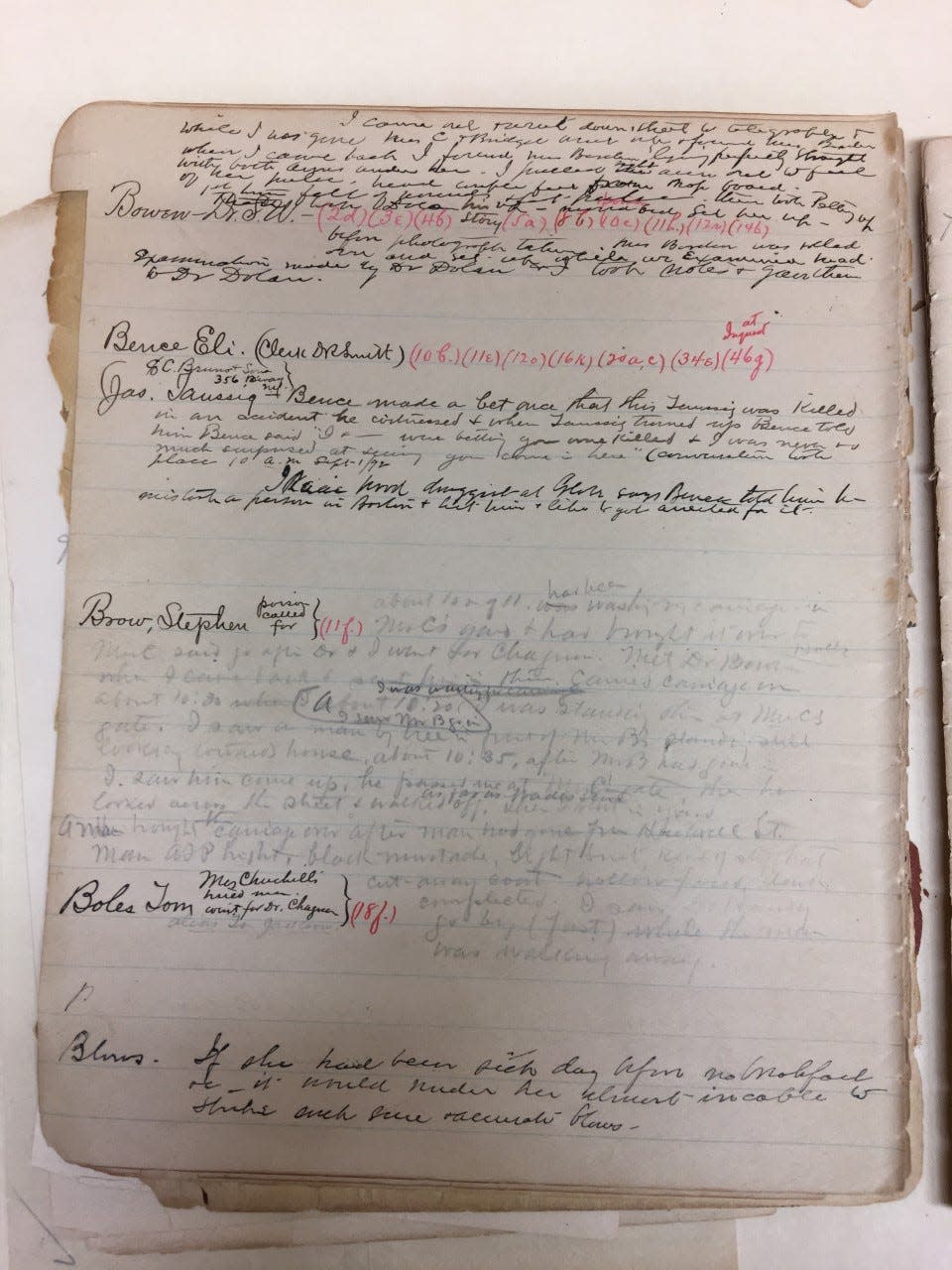
Jennings’ descendants donated much of this evidence to the society years ago, except for the journals. Jennings' grandson, Edward Saunders Waring, kept those and tried transcribe them on his own.
"He was really concerned that the journals might be misquoted in some way," Martins said. "He worked on the transcription at one point, I think hoping to publish them himself."
Waring was stymied by his grandfather's handwriting, which was incredibly difficult to read. In 2011, Waring died and bequeathed the journals to the Historical Society. Binette got to work, re-transcribing the bulk of the journals from scratch, written by two different men on delicate century-old paper.
“Andrew Jennings’ handwriting was very doctorish — it was very hard to decipher in some cases," Koorey said, adding that the editors often collaborated and double-checked each other’s work when the script was too ungainly. “Phillips was Palmer method. It was cursive and lovely, so easy to read.”
After a painstaking 10 years of research and handwriting analysis, what the journals revealed was remarkable, a side of the famously unsolved Borden murder case that hasn’t been fully explored until now.
"There are a number of individuals who were interviewed who have things to say that have never appeared in the final transcript of the trial," Martins said.
Haunted hotspot? The Lizzie Borden House was named one of the world's best haunted hotels. How scary is it?
“It definitely puts a new perspective on a whole lot of things that people thought they knew or wanted to know more about. And it raises some interesting questions … things that I’m sure will make people go in interesting directions with their theories,” Koorey said.
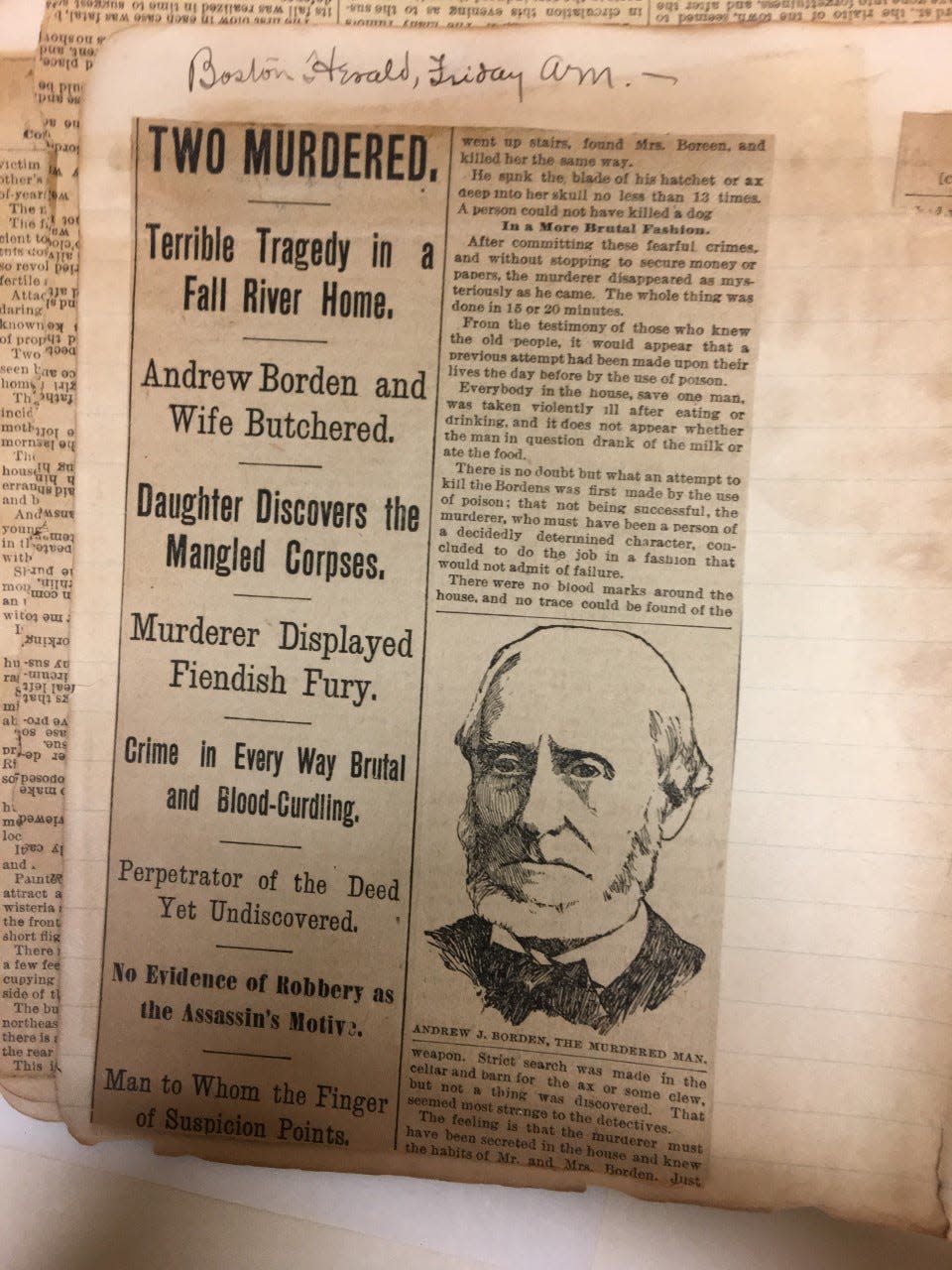
It still doesn’t definitively answer the question: Did Lizzie Borden take an axe and give her father and stepmother a whole bunch of whacks?
"There’s definitely no smoking gun," Martins said. "But there is a lot of new material here that offers more insight into the day-to-day existence of some members of the Borden family, and it dispels some myths. It gives us a clear picture of certain incidents that occurred that maybe were reported in the newspapers in one way but were told in a completely different manner by the people who were there."
Even if it doesn't solve the crime once and for all, absorbing “The Jennings Journals” may get readers a bit closer to the truth — and from a previously unseen angle.
“It’s fleshing it out, fleshing out the story from the source," Koorey said. “Instead of from the outside looking in, this is from the inside looking out.”
'A different picture emerges' about some Lizzie Borden details
Theorizing about who killed the Bordens is a full-time gig for some true-crime fans, and Martins and Koorey said "The Jennings Journals" could up-end some Lizzie lore that some people have taken as gospel for decades.
The stereotype of Andrew as a cheapskate who bullied Lizzie and her sister Emma into living in a small house downtown instead of a mansion in the swankier section of Fall River — now that's old news. And "The Jennings Journals" sheds new light on a mysterious burglary in 1891 that has fueled endless speculation about who was responsible and why. Some speculators have even imagined over the years that Lizzie might have burgled her own home.
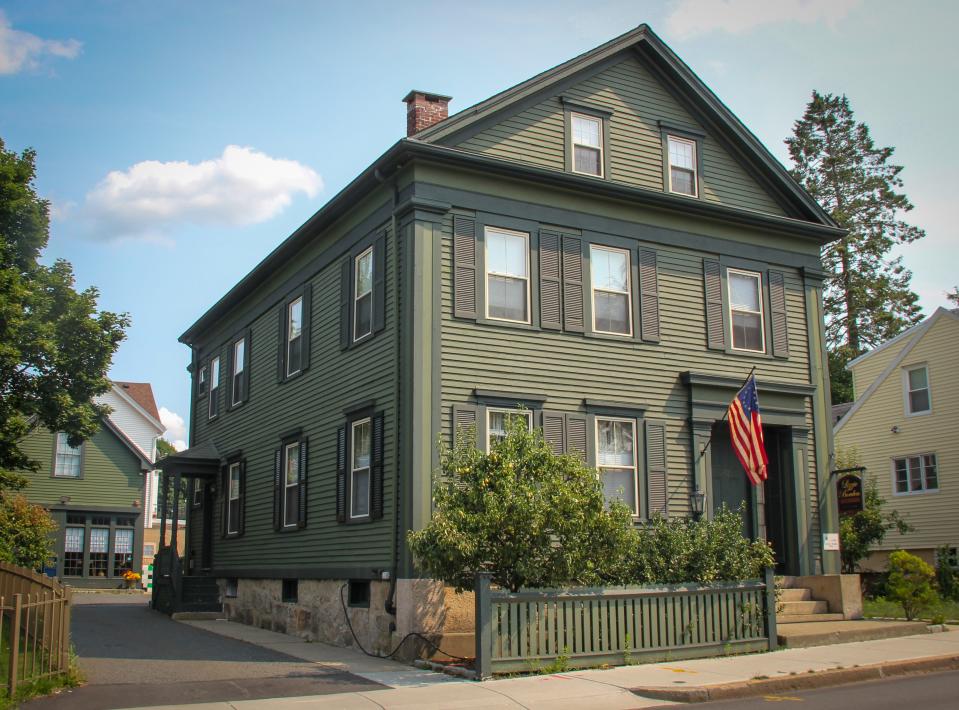
"A different picture emerges about certain incidents," Martins said. "We know, for example, Andrew Borden was looking for a house on the Hill for his daughters, who he often referred to as 'his girls.' We know more about what was going on in the Borden house when the house was broken into. The story that emerges about that incident is really compelling, and makes one question a lot of things we’ve been led to believe."
"The Jennings Journals” also contains extensive appendices that include thorough biographies of every person involved in the case or contacted by the defense team — from the Bordens themselves down to minor players in the Fall River tragedy. The information came from years of research. For anyone trying to keep track of the dozens of characters involved in this mystery, it is an invaluable resource, building a mosaic of Fall River society at the time.
“It’s the most recent information possible about these people — where they were born, where they lived, who they married, who their children are," Koorey said. “So there’s some genealogical worth to all of that as well.
“After 10 years of working on a book, to finally see it done is a huge thing,” Koorey added. “I can’t wait for people to look at it and have the reaction that I had. ‘Is that the truth? Now I have to rethink this.'"
Is there still more to learn about the Lizzie Borden case?
Given the sheer amount of material written about the Lizzie Borden case over the last 129 years, it’s tempting to think it’s all been said before. That’s not necessarily true, Koorey said. Whereas most of the writing about Lizzie Borden has been based in speculation and theorizing, the Fall River Historical Society Press has focused on publishing facts only — from the primary sources.
Learn more about Lizzie's story: Where to start your Lizzie Borden studies, with books and films
“The Historical Society is all about getting the facts right and not losing credibility," Koorey said. “So if you read what they write, you’re on the right track.”
"This book, these journals, they’re more links in the chain," Martins said. "And these links were not forged by any modern historian looking back. ... These links were forged in 1892."
"The Jennings Journals” pairs nicely with a volume their press published in 1994, "The Commonwealth of Massachusetts vs. Lizzie A. Borden, The Knowlton Papers, 1892-1893” — a groundbreaking collection of files and notes from the prosecuting attorney.
"With the Borden material, there’s no question that there is a tremendous amount of interest worldwide," Martins said. "And when new collections of material appeared, when it’s made public, it gives people additional resources to either research their own theories, or sometimes it’ll dispel certain myths."
In the works, Martins said, is another book that will explore the papers of Rufus Hilliard, then the city’s police chief — still another angle to the Borden case that hasn’t been explored. But for now, “The Jennings Journals” gives amateur sleuths a lot to chew on.
"People will rethink the case because of this book,” Koorey said, “and rethink it with facts instead of rethinking it with people’s legend and mythology and gossip.”
"The Jennings Journals 1892" ($27.95) is available online from the Fall River Historical Society Press, or in the gift shop at the Fall River Historical Society, 451 Rock St.
Dan Medeiros can be reached at dmedeiros@heraldnews.com. Support local journalism by purchasing a digital or print subscription to The Herald News today.
This article originally appeared on The Herald News: Lizzie Borden book by Fall River Historical Society looks into defense

